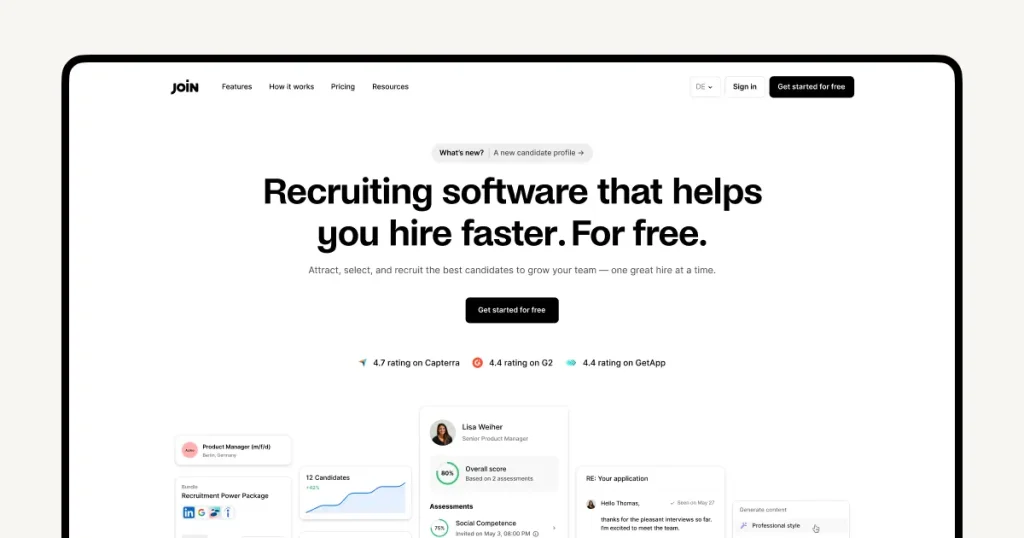Best interview questions for your hiring process
Architect Interview questions
Architects are essential to any construction team. Their creativity and visualisation skills, as well as technical knowledge, are what helps to get a project off of the ground. They’re negotiation and communication experts who help turn a client’s dream into a design, which will eventually become reality.
You should seek these skills in your Architect:
- A deep creative skill.
- Excellent knowledge of building code and regulations.
- Confident communicator.
- Ability to use both digital design software and to craft technical drawings and blueprints.
- Skilled in presenting and explaining ideas.
- Problem-solving ability and adaptability to situations.
Interviewing an Architect
Without an Architect, designing a structure or building from scratch is near impossible. They have the creative flair and know-how to turn an idea into a detailed plan, and the knowledge to guide a team to craft this vision. Therefore, you need to be able to accurately assess their skills in the interview.
So, to help you along in the interview process, we’ve come up with a guide containing different questions that’ll help you to assess different skill sets. We designed this guide to be used early in the interview process, to help you get a good feeling for the candidate from the get-go.
How to open the job interview
The best way to start an interview is by warming up the conversation for a more natural flow. You can do this by asking a couple of easy, friendly opening questions. Don’t spend too long on these, but by asking them you’ll ensure a more naturally flowing interview!
Best interview questions for your hiring process
See our Architect job description hereFor the interview
A positive opener to start
What is your proudest accomplishment as an Architect?
How did you decide to pursue a career as an Architect?
Behavioral Questions
How do you stay up to date with trends and changes in the Architectural industry?
What type of working environment do you feel fits you best?
This is an essential question for a future hire, especially in a role that can be as demanding as an Architect! Your candidate’s answer will allow you to assess how well they will fit into your current working environment. The Architect should be able to mention their adaptability and ability to keep up with a fast pace.
When working with a client who is particularly difficult, how do you take their comments and criticisms into account while remaining motivated and professional?
Working directly with clients can be a struggle from time to time. The answer here should highlight the candidate’s negotiation skills, communication ability and confidence in their own work and talent. This means politely taking a client’s comments and suggestions on board, while remaining firm in decisions that you know to be right.
What motivates you most when working on Architectural design projects?
Designing and planning a construction project can be gruelling work, so finding a candidate who has several motivational techniques and behaviours to keep them going through the tough moments is critical.
Soft Skills
When helping to oversee a construction project and noticing that a colleague has made a mistake, what is your approach?
While Architects spend a lot of time working independently, there will come times when teamwork is essential. Knowing that the candidate can act quickly and communicate with their team to minimise disruption, as well as increase safety and quality in their work, is a huge priority.
Many construction projects will include liaising with various stakeholders within and outside of our business, how do you stay organised when working this way?
Communicating with multiple stakeholders and working to various deadlines or timelines can quickly become messy. Your candidate needs to have the skill to correctly manage correspondence and stick to these deadlines. Their techniques to achieve this will be revealed in this answer.
If a client requested a change to your design that you weren’t sure how to approach, what steps would you take?
This question again focuses on the candidate’s negotiation and communication skills. Here, the best steps to take would be to be honest with the client and work with the internal team to help overcome the issue or come to an agreement with the client. Learnings can then be taken from the situation to prepare for any similar developments in the future.
What skills do you hold that make you perfect for an Architect position?
This question is a chance for the candidate to show off their skills and confidence, which is key in this role. You’ll get an idea of which soft and hard skills a candidate believes they shine in!
When talking through your designs to a client, who may have less technical knowledge than you, how do you ensure that they understand you?
Here, you’ll get an idea of a candidate’s communication skills and techniques. Asking whether a client has any questions, or explaining technical terms, is a sure-fire way to keep them interested and invested.
Hard Skills
What is the largest project you have worked on in the past? How did you handle this challenge?
Hearing the scale of the project your candidate has worked on previously will allow you to compare this to the work they will be completing in your business. Plus, for larger projects, hearing how they cope with the challenges this scale brings will give you an idea of their skill.
Which Architectural design software have you used in the past?
Here, you will get an idea of how the software your Architect uses matches up with your current way of working. You’ll get an idea of whether they will need to be onboarded or can bring new skills to the team.
Do you have experience presenting designs to clients?
This will likely be a large part of your Architect’s role. Knowing they have the skill to present and talk through their designs, as well as answer any questions your clients may have is crucial.
How would you describe your design style to a potential client?
Not only will this give you a better idea of a candidate’s design style and ability to sell themselves, but you’ll get an idea of how well-developed their style is. If they can confidently describe their work, this is a plus!
How do you ensure that your designs are compliant with local building codes and regulations?
This is a highly essential question to ask an Architect. They should mention double-checking the regulations and a process for checking and ensuring their designs meet these.
Operational / Situational Questions
Describe a time when a design you had made didn’t come out exactly the way you wanted? What steps did you take?
Knowing your candidate has the attention to detail and dedication to the quality needed to critique and improve their own work is an excellent trait for an Architect to have. This answer should also give you an insight into their experience.
Imagine a client has given you some critical feedback on your design. How would you deal with this?
A candidate should be able to take feedback on their design and work with it to implement the feedback into their design. Ideally, they should be able to stay motivated and positive when receiving feedback such as this.
Imagine you have a colleague whose quality of work does not match your own. What would you do in this situation?
Here, you’re looking for communication and dedication to their task. The issue should be brought up as quickly as possible to minimise the damage done. The quality should be pointed out in a professional manner and steps should be formed to improve this quality and ensure the issue does not creep up again.
Describe the project you have worked on which you are most proud of. What went well, and how did you learn from this for future projects?
Here, you will get an idea of a candidate’s best work and how they learnt from this to develop best practices in their working styles and techniques. You’ll also get an idea of their confidence level.
Describe a mistake you have made in a previous project. How did you rectify this and further learn from it?
Mistakes happen. Knowing your candidate can own up to these, make notes and consciously learn from them is a great strength.

Start hiring and prepare your interview
All platforms are available for you to promote your job through JOIN.
Create job ad for free


Architecture trends are ever-changing and can happen extremely quickly. Knowing your Architect has behaviours and practises that allow them to be fully informed of these changes as and when they occur will future-proof your business.